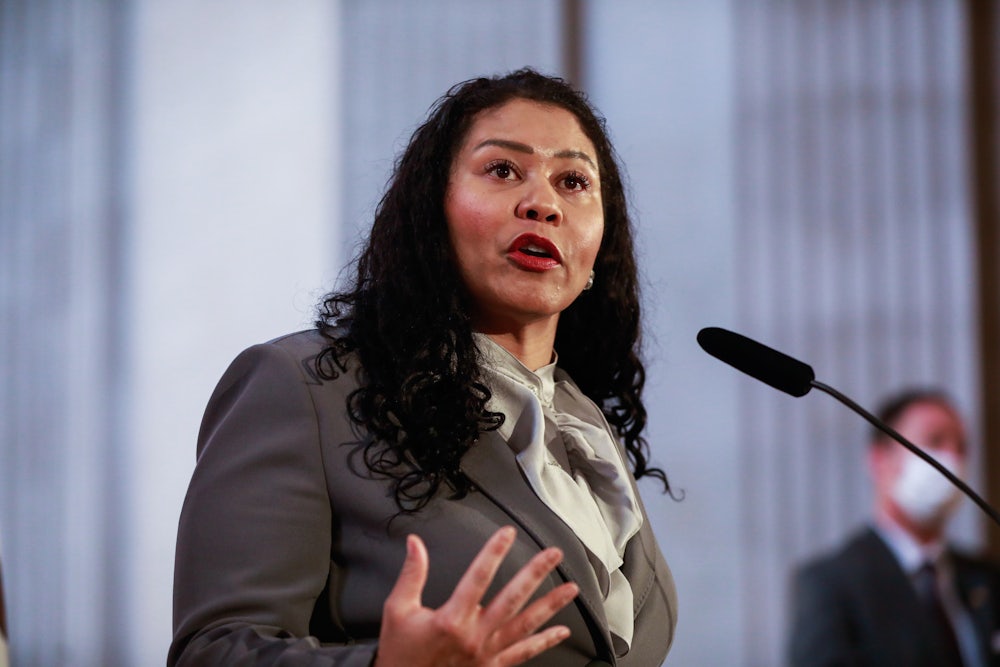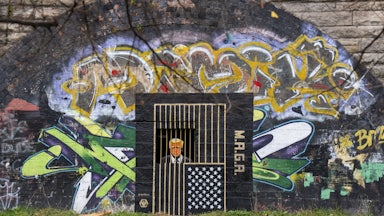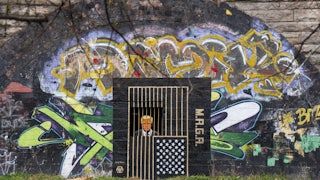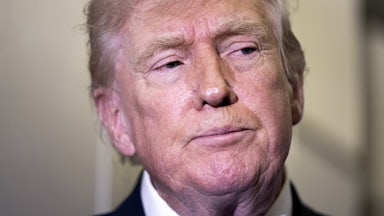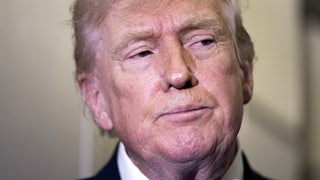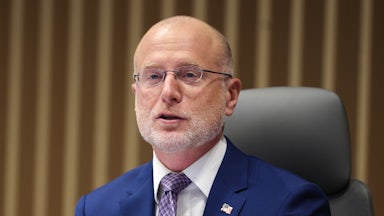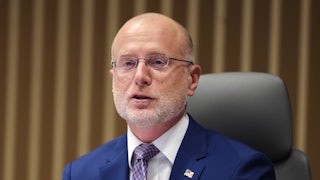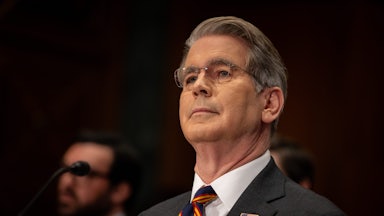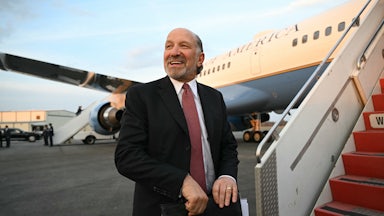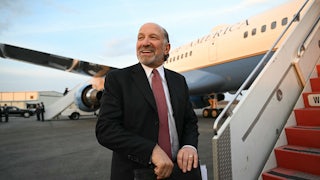The monied interests pouring unprecedented
amounts of cash into San Francisco’s local elections would like you to know
they are not conservative. Call them “moderate” instead, or perhaps
“commonsense.” “Progressives have tried their approach to governing the city
and failed. Moderates are working to put it back together,” wrote Todd David,
political director of the advocacy organization Abundance Network, in a letter
to the editor of the San
Francisco Chronicle. Local advocacy group GrowSF,
meanwhile, “[believes] in pragmatism and leaders who are willing to put
outcomes ahead of soundbites, which puts us closer to the ‘Moderate’ end of the
spectrum,” according to its blog. And billionaire venture capitalist Michael
Moritz, a major funder of a nonprofit called TogetherSF, has been especially
vocal on the subject. “Like it or not, San Francisco has become a prize example
of how we Democrats have become our own worst enemy,” he wrote in a recent New
York Times guest essay—his second in two years—titled “Even
Democrats like me are fed up with San Francisco.”
Groups like the Abundance Network, GrowSF, and TogetherSF, along with Neighbors for a Better San Francisco, Stop Crime SF, and many others, are using big-money donations from an overlapping pool of donors to pull the city toward the center. This election, they’ve thrown their weight behind ostensibly moderate mayoral candidates, several ballot measures, and a slate of challengers for the city’s legislative body, the Board of Supervisors. The groups and their chosen candidates advocate for more police funding, a carceral approach to homelessness and drug addiction, looser regulations for real estate development, and lower taxes for the wealthy. Their goal, in the words of GrowSF board member Garry Tan: “Make San Francisco common-sense again.”
These nonprofit groups, which began to appear in 2020, secured their first big win in early 2022 with the recall of three San Francisco School Board members. The effort channeled parental frustrations at public schools that remained closed even as private ones reopened and at a board seemingly more concerned with renaming schools named after such figures as Abraham Lincoln, Paul Revere, and Dianne Feinstein than in figuring out in-person learning. It was the city’s first successful recall in over a hundred years; the next came just a few months later when the electorate recalled progressive District Attorney Chesa Boudin, who’d ended cash bail and prioritized prosecuting violent crime over property crime during his two and a half years in office.
To be clear, San Francisco is a city with real issues—though often exaggerated by national media—and they have given its citizens cause for frustration. A significantly lower violent crime rate than the average American city is offset by a significantly higher rate of property crime (which has persisted post-Boudin, though rates are coming down), and drug overdose rates are well above the national average. And the city has among the highest housing costs in the United States; one in every four residents of this city of 800,000 pays more than half their income toward rent, and nearly one out of every 100 residents is unhoused.
These problems did not develop under progressive leadership, however. “We have not had a progressive mayor since [George] Moscone,” political science professor James Taylor of the University of San Francisco told me. “San Francisco voters have given us Ed Lee, London Breed, Willie Brown, Gavin Newsom. Not one of them is a left-leaning liberal.” Breed, the current mayor, has been in office since 2018 and recently proposed a 2024 budget that would increase police funding by 6 percent. She endorsed a ballot measure to decrease police oversight that was denounced by the ACLU and a measure requiring drug screening for suspected users receiving welfare benefits. (Both measures passed last March.) Her administration conducts aggressive sweeps of homeless encampments and supports the YIMBY movement. In 2023, Breed closed the city’s only safe injection site and pivoted to arresting drug users instead—a departure from the harm-reduction initiative passed by the supervisors and approved by Breed herself a year earlier.
Self-styled moderate groups argue that the Board of Supervisors is filled with progressives who have stymied Breed’s efforts to fix the city. Taylor disagrees. “That’s absurd to even hear. Are you kidding me? London Breed controls 90 percent of the budget of San Francisco. That’s the end of the conversation.” San Francisco mayors can both introduce legislation themselves and veto legislation passed by the Board of Supervisors. They also draft the annual budget and appoint department heads. The 11-member Board of Supervisors has more oversight power than it did 20 years ago but far less than similar entities in most large cities.
The implications of recasting moderate policy as progressive—and conservative policy as moderate—go beyond San Francisco. Pushing city politics rightward allows moderates and conservatives across the country to label the abandoned ideological ground as too progressive for San Francisco and therefore surely too progressive for America.
“They are very deliberately trying to set the direction of San Francisco politics,” Jeremy Mack, a member of the watchdog organization Phoenix Project, told me. “And without people knowing … the way that the candidates and referendums are connected to a larger ideological and agenda goal, it’s very hard to push back against.”
By “they,” Mack means groups like Neighbors for a Better San Francisco, the Abundance Network, TogetherSF, and GrowSF: interconnected nonprofit 501 (c)(3)s, 501 (c)(4)s, and PACs that donate money to each other, receive funds from an overlapping group of the tech industry ultrawealthy, and sponsor other local “moderate” groups further down the line in a loosely coordinated web of at least 10 organizations. Some of these groups sponsor community events like neighborhood cleanups, which have no apparent political agenda but serve to collect contact information for mailing lists. Others host candidate meet-and-greets and create political ad campaigns (such as TogetherSF’s infamous “That’s Fentalife!” campaign, which some felt portrayed drug addiction as a lifestyle choice rather than a mental illness). GrowSF and TogetherSF produce voter guides, and all four main groups have an arm able to donate money directly to candidates or other PACs (GrowSF has a PAC, Abundance Network is a 501 (c) (4) able to lobby directly, and Neighbors for a Better San Francisco and TogetherSF have both nonpartisan 501 (c) (3)s and 501 (c) (4)s). All these activities seek to influence San Francisco politics. Since 2020, these groups have collectively raised over $30 million—more money, according to documents compiled by the Phoenix Project, than was spent on the 71 Board of Supervisors campaigns between 2000 and 2020 combined.
Nearly 60 percent of this funding comes from dark money. Much of the rest of it comes from a handful of billionaires, several of whom have a history of donating to nonmoderate candidates and causes. Moritz—who called himself a Democrat numerous times in his recent New York Times guest essay—and his Crankstart Foundation donated $6 million to TogetherSF and promised $11 million more. He has supported Democratic causes, as well as Mitt Romney, John Kasich, and the Ohio Republican Party. William Oberndorf, a billionaire investor and hedge fund manager, is the president and director of Neighbors for a Better San Francisco—and also supported Ted Cruz, Nikki Haley, and Doug Burgum. Between 2016 and 2020, Oberndorf gave over $4 million to Mitch McConnell’s superPAC, the Senate Leadership Fund. Retired Basic American Foods chairman William Hume, who contributed $50,000 to Neighbors for a Better San Francisco, also donated to Donald Trump’s 2016 and 2020 presidential campaigns.
Some of the people most directly involved in organizing these groups even have ties to a radical sovereign “network state” concept Gil Duran has covered extensively for The New Republic. Moritz is a major investor in California Forever, an aspirational semiautonomous city 60 miles outside San Francisco, while Grow SF’s Tan, who used to work for Peter Thiel’s Palantir, has connections with Network State guru Balaji Srinivasan, who has called for the physical expulsion of the “blues” from San Francisco by an alliance between the “grays” (venture capitalists) and “reds” (conservatives).
The four main groups have split their endorsements in this year’s mayoral elections between Breed and her two “moderate” challengers, the primarily self-funding philanthropist and Levi Strauss heir Daniel Lurie and former Mayor Mark Farrell. San Francisco uses ranked-choice voting, and all these organizations urge voters to rank these three moderate candidates in the name of defeating the progressive candidate, Board of Supervisors President Aaron Peskin.
Outside of the mayoral race, the big four nonprofits are in agreement. They are backing Board of Supervisor candidates for all six open seats and are campaigning especially hard against progressive incumbents Connie Chan, Myrna Melgar, and Dean Preston. Preston, who is the first Democratic Socialist to serve on the Board of Supervisors in nearly 30 years, remains a special target for their ire. Among the ballot questions, the groups broadly support a yes vote on Prop D, which would cut the number of city commissions in half and severely limit the Board of Supervisors’ ability to exert control over the ones that remain, further consolidating municipal power in mayoral hands. (Interestingly, GrowSF and TogetherSF also oppose Prop E, which seeks to address the same issue as Prop D—a bloated and redundant bureaucracy—but would create a task force to review the situation and make recommendations for how to streamline government.)
GrowSF and TogetherSF also oppose Prop C—which would create an inspector general able to investigate fraud, waste, and abuse claims—and Prop G, which would secure housing subsidies for impoverished San Franciscans. They much prefer Prop M, which would cut business taxes
Of course, money in politics is nothing new—in San Francisco or anywhere else. But the goals here seem to extend beyond specific initiatives. In September, the Phoenix Project obtained and released an internal TogetherSF PowerPoint that detailed a long-term plan for “growing an engaged (and enraged) community.” The organization hopes to continue building a community of voters able to “change the government’s structural issues” and elect “candidates who are pro-housing, education and business.” To help accomplish this, they are seeking to develop leaders able to advance those goals both in the community and the halls of power. “Until now, there has never been a group working at this level to mobilize this many voters to ensure local government thrives with a new generation of innovative leaders and a structure that works,” the document concludes.
Will the money and effort pay off this election cycle? Signs are mixed. Polls show the progressive Peskin experiencing a last-minute rise, though ranked-choice voting shows Lurie as the likely winner. So far, though, the networks’ biggest victories have occurred in low-turnout elections; 46 percent of the electorate turned out to recall Boudin, and just 36 percent voted to recall the School Board. During the last presidential election in 2020, more than 86 percent of the San Francisco electorate turned out to cast a vote. On Tuesday, they will have the opportunity to either accept or reject the narrative of progressive dysfunction and the monetary push to the center.
